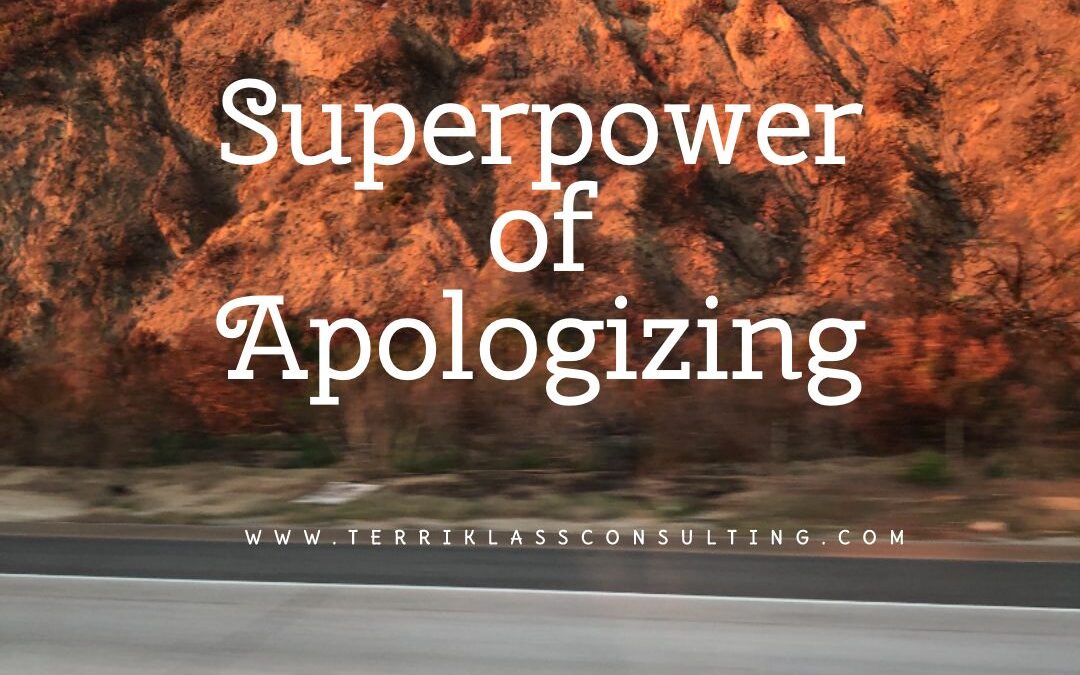When was the last time you really messed up and kept kicking yourself for the misstep? I found myself in this situation during a meeting this past week. Some information seemed to just fall out of my mouth that I wished I hadn’t shared. I definitely could have expressed my thoughts in a different and clearer way, but no, the message was blurted out. The minute the words flowed, I knew I had misspoken and wished I could have hit the “Unsend” button. It happens, and when it does, we go into a tailspin. What came next was my inner critic lobbying out some chastising comments:
“What was I thinking?”
“Did it actually come out as bad as I thought?”
“There was some humor in my voice so perhaps it wasn’t received in the same way I am feeling.”
“What should I do now to make amends?”
At one time or another, probably several times a week, leaders find themselves sitting with emails, texts and face-to-face conversations that they wished they could redo. We’re human after all which means we are quite imperfect. Sometimes leaders make matters worse by pretending they didn’t say what they said, hoping it will be forgotten. Other times we convince ourselves that the words weren’t that “bad”. Eventually we come to the only conclusion we can and that is we absolutely need to apologize.
The Superpower of Leading With “I want to apologize”
1. Demonstrates We Are Authentic
In the moment leaders are able to apologize, they are revealing their vulnerable side. They are exposing a part of themselves that may feel uncomfortable but will ultimately showcase their authenticity. Being authentic is key to a leader being trusted and believed. While some leaders think that being vulnerable is a negative and will impact how others view them, just the opposite is true. Influential leaders are confident in apologizing when they make a mistake.
When leaders apologize, they are showing others their authentic side. Share on X2. Helps Build Deeper Relationships
Being able to admit our mistakes is the first step in developing credibility with the people we work with. Our colleagues will value our leadership if they feel we are willing to hold ourselves accountable for our actions and words. When leaders apologize, they are saying to the people they work with:
- Our relationship is important to me.
- I want to be a credible and dependable person in your life.
- I was wrong and regret saying or doing what I did.
3. Brings Out The Truth
Leading with an apology when we have wronged someone is an impactful way to share the truth about a situation. For example, when I blurted out the imperfect message, I really wasn’t being honest about what I was feeling. My words reflected other situations that were circling around in my head. There was more going on that was frustrating me. A leader can blame a team member for missing a deadline when there may be more reasons why the project was falling behind or even failing. An apology can clear the air and bring out what was true.
4. Models A Culture of Caring
Expressing that we are sorry when we have hurt someone or made a mistake is a behavior that is worth modeling. It’s a value that can establish a culture of caring and compassion. Leaders spend far too much time trying to cover up their missteps and justifying why they are not accountable for an error. A culture of caring:
- Creates psychological safety in the work environment.
- Helps teams leverage each person’s strengths and talents.
- Elevates the amount of innovation as risk-taking is encouraged.
5. Empowers Us To Be Stronger Leaders
In the end, the superpower of “I want to apologize” builds strong and impactful leaders. When teams and organizations step up and hold themselves accountable for the words and behaviors they exhibit, there will be more trust. That will lead to a feeling of belonging which is what every leader strives to cultivate for their teams. In my situation, I did just that- I apologized for my words and in doing that built more credibility.
How have you used your superpower of apologizing? How did it impact your leadership?


Instead of saying ” I want to apologize,” just do it! Lead with “I apologize for my behavior.”
Thanks for stopping by and joining in on the discussion, Kelly and adding your insights.